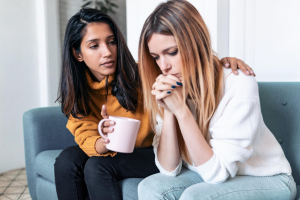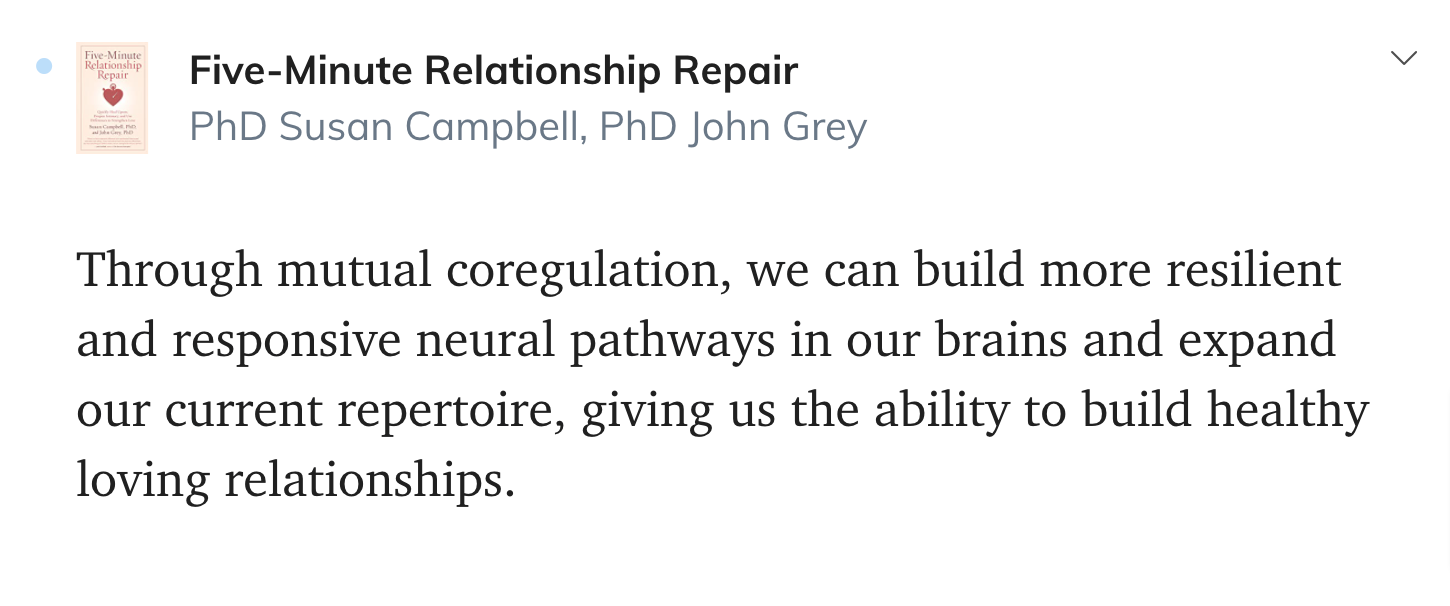In tough times, it helps to have friends and loved ones to turn to for support. They can offer a hug, some words of encouragement, and the assurance that what we’re going is, indeed, lousy.

But a new study suggests that support from friends does more than that. It can help our brains see the problem in a new way—or “look on the bright side”—better than if we tried to deal with it alone.
Researchers at UCLA recruited 120 young women to observe how they coped with difficult feelings. To evoke those feelings, they were shown a series of negative images, such as sad or angry faces, or people living in poverty. After viewing each image, they were instructed to either respond naturally to it, reinterpret it (think about it differently in order to feel better about it), or listen to a reinterpretation recorded by a friend who came with them to participate in the study. For example, if an image showed a couple fighting, the reinterpretation might be that they look upset, but they’re finally working through an important disagreement.
After each image, participants rated how bad they felt in that moment. They also went through the same process with neutral images, like people reading or walking.
Ultimately, seeing negative images did make people feel worse. The practice of reinterpreting, or looking on the bright side, helped alleviate their distress—but it helped even more if people heard a reinterpretation from a friend.
“Emotion regulation is more effective when other people actively help us with it,” says lead author Razia Sahi, a graduate student researcher at UCLA.
Why was hearing a friend’s perspective so comforting? One version of the experiment found that it wasn’t just the presence of a friend that made a difference; listening to a friend counting numbers wasn’t more soothing to participants than counting in their own heads. Something about hearing the friend’s way of looking at things helped them recover.
Perhaps hearing a friend engage with whatever is troubling us makes us feel less alone, the researchers suggest. Or their perspective may just seem more plausible than anything positive we tell ourselves, which might feel like self-delusion—or be hard to come up with at all when we’re in the thick of it.
“We should lean into social support during negative experiences, since our friends are sometimes a lot better at regulating our emotions than we are at regulating them ourselves,” says Sahi.
Of course, looking on the bright side won’t work all the time, as Sahi acknowledges. It can sometimes come off as callous—a friend dismissing our feelings and insisting that things aren’t as bad as we think. She suspects that it depends on what’s troubling us, how exactly they respond to it, and whether they’re offering other types of support, too, like a hug or some words of understanding. Sahi is currently conducting research to explore how this process works in everyday life, outside the laboratory, to get a clearer picture.
This study adds to an interesting line of research suggesting that emotion regulation, which we often think of as a solo, introspective task, is actually very social. For example, our romantic partners sometimes know better than we do what we need to feel better. And allowing others to help us navigate our emotions actually serves as practice for them to regulate their own.
It’s not always easy to ask for support. We might judge ourselves if we can’t deal with our problems alone, or feel like we’re annoying our friends. But in the long run, we’re all better off if we support each other.
